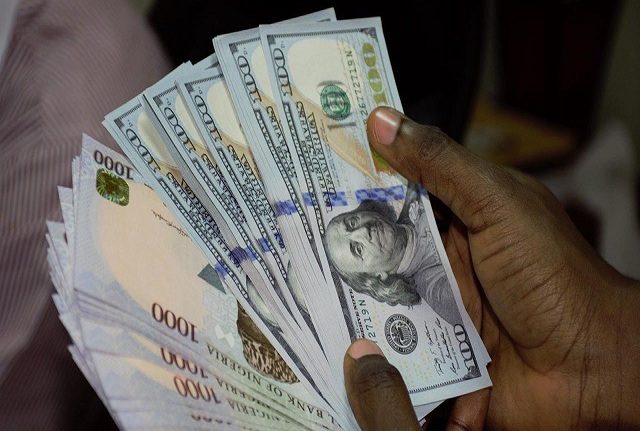In a significant turn of events in the Nigerian currency market, the naira, exhibited strength and resilience, recording an impressive appreciation of 5.3% against the US dollar. The exchange rate settled at NGN878.61/USD at the Nigerian Autonomous Foreign Exchange Market (NAFEM), marking a positive shift that is capturing the attention of financial observers and market participants.
The strengthened position of the naira against the dollar is a notable development that could have far-reaching implications for the country’s economic landscape. A more robust local currency can contribute to increased purchasing power for consumers and potentially attract foreign investment, fostering overall economic stability.
Market analysts are closely monitoring the factors influencing this currency appreciation, including economic indicators, government policies, and global market dynamics. The positive movement is likely to have a cascading effect on various sectors, influencing trade balances, inflation rates, and investment sentiments.
The Nigerian Central Bank’s efforts to maintain a stable exchange rate and implement effective monetary policies may be contributing to the observed resilience of the naira in the foreign exchange market.
As the financial landscape continues to evolve, the strengthening of the naira provides a ray of optimism for businesses and consumers alike. However, stakeholders remain vigilant, recognizing the need for sustained efforts to ensure a stable and thriving economic environment in Nigeria. The coming weeks will undoubtedly bring further insights into the sustainability of this positive trend in the currency market.
Money Market and Fixed Income Developments
The overnight lending rate experienced a contraction of 15 basis points, settling at 20.9%. This shift was attributed to an inflow stemming from the Federal Government bond coupon payment, totaling NGN29.74 billion. The injection of funds appears to have contributed to the easing of short-term lending rates.
However, the Nigerian Treasury Bills (NTB) secondary market painted a contrasting picture, with activities remaining. The average yield expanded by 31 basis points to reach 4.2%. Notably, the 317-day tenor faced bearish substantial sell pressures, leading to a significant increase of 745 basis points. Meanwhile, the short and mid segments maintained an unchanged average yield, and the Open Market Operations (OMO) segment reported a flat average yield at 8.4%.
The Treasury bond secondary market closed on a bearish note, witnessing a 3 basis points uptick in the average yield to 13.5%. Demand for the JAN-2026 bond resulted in a contraction of 40 basis points at the short end, providing a silver lining amid the overall negative sentiment. Conversely, sell-offs on the JUN-2038 bond caused a 60 basis points expansion at the long end, and the mid-segment recorded a flat average yield of 8.4%.
Investors and analysts are maintaining a vigilant watch on these market trends as the Nigerian financial landscape continues to evolve. The mixed signals observed in the money market and fixed income sectors suggest a dynamic environment that demands careful analysis and strategic decision-making.















